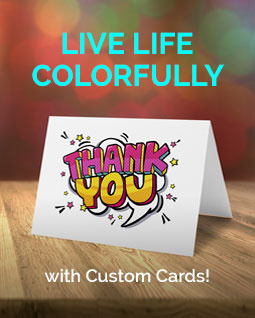More Tech Tips
- • Print Troubleshooting Tips for Adobe InDesign
- • Ditch the Typos with InDesign’s Dynamic Spellcheck Settings
- • Unlocking Design Flow Secrets: Expert Advice for Print Projects
- • Packaging Your Files for Print: 5 Simple Steps for Flawless Printing Results
- • 6 Tips for Creating an Impossible-to-Ignore Cover
- • A Perfect Landing Place
- • How to Rebrand Your Business in 7 Steps
- • Add Beauty and Balance Using the Golden Ratio and the Perfect Spiral
6 InDesign Best Practices
There are some powerful software suites available today that will help you bring your idea to life, but few are as well-designed for print as Adobe InDesign.
At first glance, you might be a bit intimidated by the large number of buttons and gadgets you’ll see within the software. These InDesign best-practice tips will help you be successful when you’re ready to send your creation for printing. From starting with the end in mind to ensuring that all of your styles are correctly formatted for printing, you can leverage the power of InDesign to create print-ready pieces that you will be proud to share with your customers.
Begin at the End
InDesign has a fantastic feature called “Live Preflight.” This tool allows you to see any problems that your printer will find with the file before you send it. While designers traditionally would have to manually check their files for errors, or discover issues only after the output has been delivered for printing, Live Preflight helps catch things like missing fonts and images that are improperly linked upfront.

Thread That Text!
“Threading” your text allows you to flow content from frame to frame, making it much simpler to make changes to the size of text boxes and other page elements. Instead of being a bunch of disconnected paragraphs, this creates a more cohesive story that can evenly break across pages. Magazine designers use this cool functionality a great deal as they’re writing longer-form content, but it’s helpful even for smaller projects such as postcards or flyers, too.

Keep Your Formatting Consistent
If you’re not careful, you may find that your fonts, sizing, and colors are losing consistency throughout your printed piece. It can be pretty tough to see this before sending it for printing. The best way to maintain that consistency is through creating styles for all your formatting. If you’re used to highlighting a block of text and applying a different font or color – break that habit! Creating styles that represent the look that you’re trying to accomplish and then applying those styles to similar text blocks makes it easy to make global changes to text in the future.

One-Level High, Please
Stacking objects on top of one another may seem like an easy way to create advanced looks within your file, but this can cause some problems down the road. InDesign pros know that stacking objects is sometimes required, but should be avoided whenever possible to make it easier to shift items around on the page.
Here are two final (BONUS) tips:
- Keep your design simple.
- Keep your fonts embedded.
Eager for more InDesign tips and tricks? Contact us today!


Adobe InDesign CC Classroom in a Book (2018 release) 1st Edition
by Kelly Kordes and Tina DeJarld
Creative professionals seeking the fastest, easiest, most comprehensive way to learn Adobe InDesign choose Adobe InDesign CC Classroom in a Book (2018 release) from Adobe Press. The 15 project-based step-by-step lessons show users the key techniques for working in InDesign. Designers will build a strong foundation of typographic, page layout, and document-construction skills that will enable them to produce a broad range of print and digital publications—from a simple postcard to an interactive Adobe PDF with form fields. The real-world tasks in this comprehensive book are presented in an easy-to-follow, step-by-step format and are designed to train beginning Adobe InDesign users in the program—from fundamental features to powerful layout and output skills. This book will also help experienced InDesign users elevate their skills, understand best practices, and learn about new features.
The online companion files include all the necessary assets for readers to complete the projects featured in each lesson as well as ebook updates when Adobe releases relevant new features for Creative Cloud customers. All buyers of the book get full access to the Web Edition: a Web-based version of the complete ebook enhanced with video and multiple-choice quizzes.



Share this